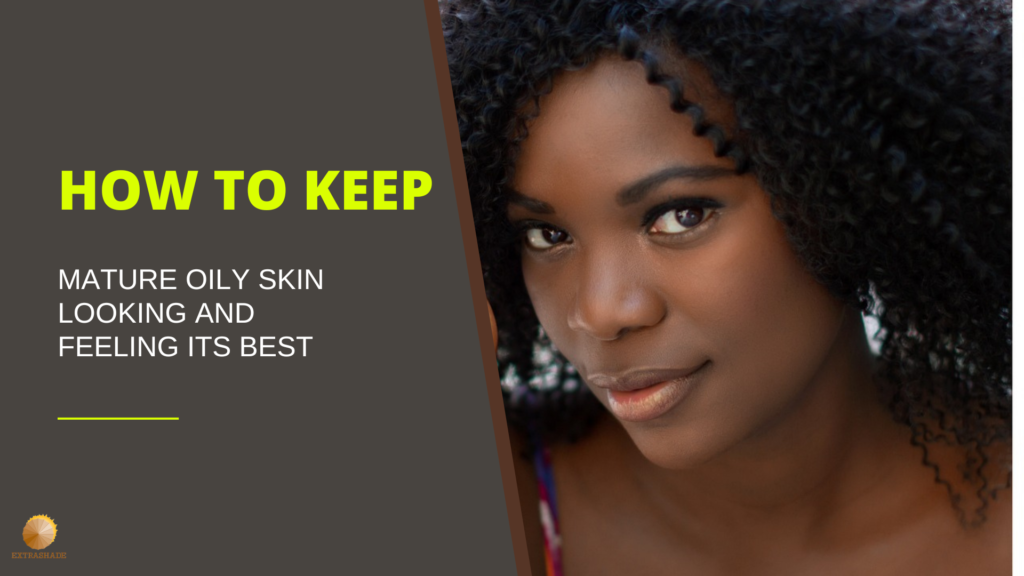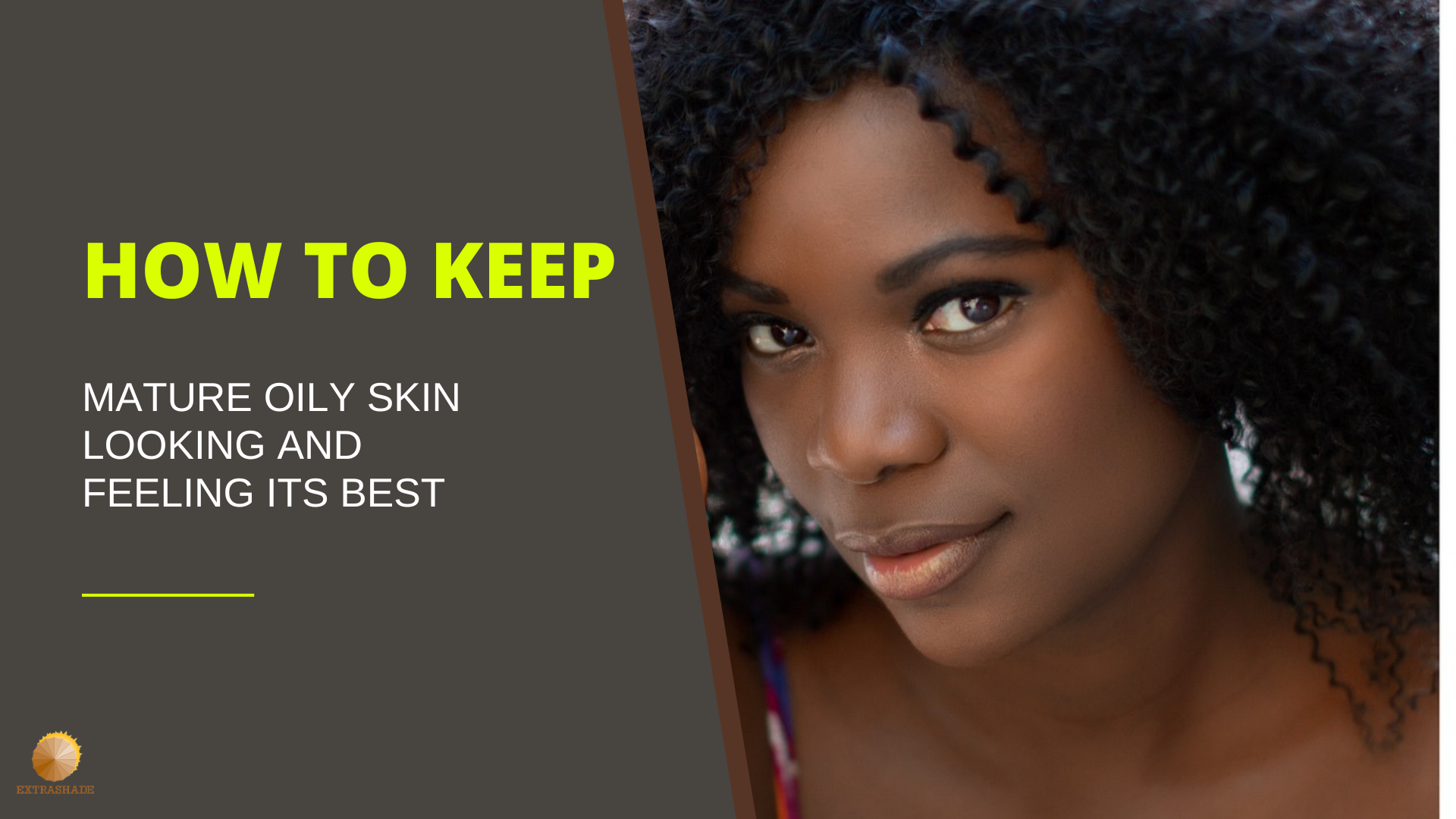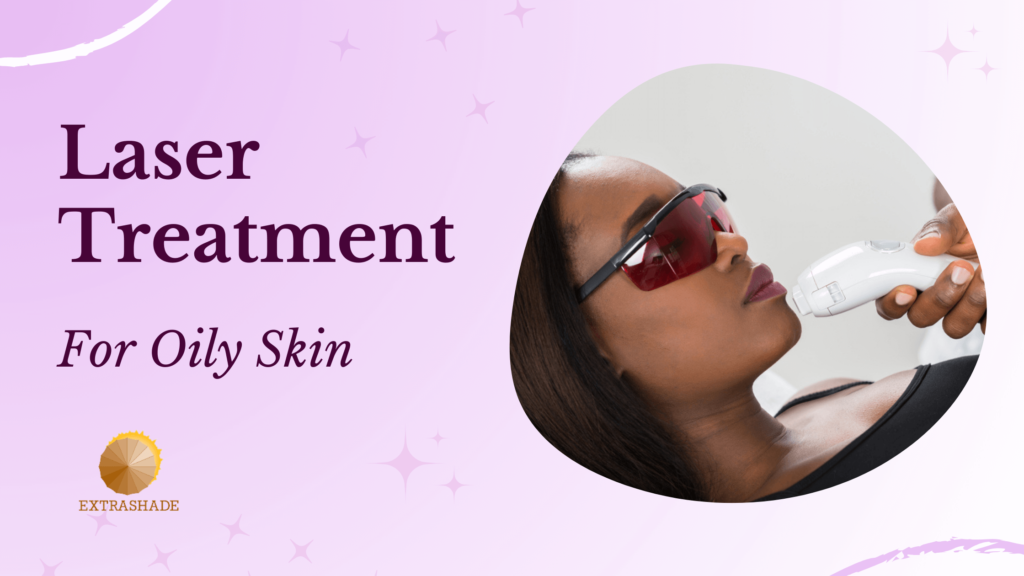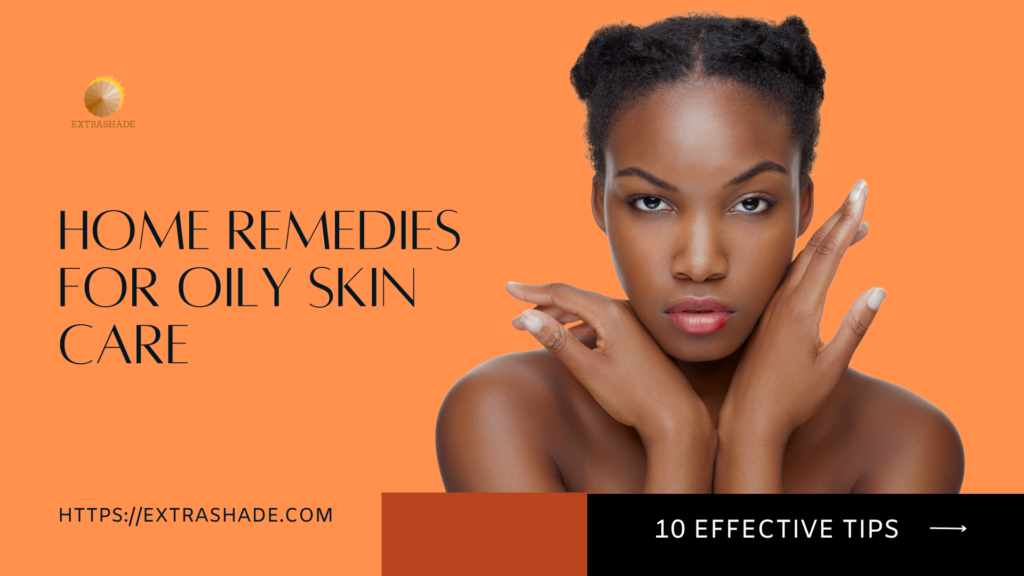Do you have mature, oily skin?
If so, you know that it can be a challenge to keep your skin looking and feeling its best. As we age, our skin produces less oil, but the oil that it does produce can be thicker and more difficult to control. This can lead to a number of problems, including breakouts, enlarged pores, and dullness.
But don’t despair!
There are a number of things you can do to keep your mature oily skin looking and feeling its best. To know them, let’s dive in.
10 Essential Tips for Caring for Mature Oily Skin

Caring for mature oily skin requires a delicate balance between addressing the signs of aging and managing excessive oil production. Here are 10 essential tips to help you care for mature oily skin:
i. Gentle cleansing
Use a gentle, oil-free cleanser specifically formulated for oily skin to remove dirt, excess oil, and impurities without stripping the skin’s natural moisture.
ii. Exfoliate regularly
Exfoliation helps remove dead skin cells and unclog pores. Opt for chemical exfoliants like salicylic acid or glycolic acid, which are effective for oily skin and also offer anti-aging benefits.
iii. Hydrate with lightweight moisturizers
Choose oil-free or lightweight moisturizers that provide hydration without adding excessive oil to your skin. Look for products that contain hyaluronic acid, which helps retain moisture.
iv. Use oil-free sunscreen
Protecting your skin from the sun is crucial, even if you have oily skin. Opt for oil-free, non-comedogenic sunscreens with at least SPF 30 to shield your skin from harmful UV rays.
v. Control excess oil
Consider using oil-absorbing products like mattifying primers or oil-control powders to reduce shine and keep your skin looking fresh throughout the day.
vi. Targeted treatment for aging concerns
Look for skincare products that address both oily skin and aging concerns. Ingredients like retinol, niacinamide, and peptides can help reduce the appearance of fine lines, wrinkles, and uneven skin tone.
vii. Avoid harsh products
Stay away from harsh cleansers, toners, or astringents that can strip the skin and cause it to produce more oil. Opt for gentle, pH-balanced products instead.
viii. Don’t skip moisturization
Even if you have oily skin, moisturization is essential. Skipping moisturizer can lead to dehydration, causing your skin to produce more oil. Choose lightweight, non-comedogenic moisturizers to maintain hydration.
ix. Control your diet
A healthy diet can impact your skin’s health. Limit your intake of greasy and fried foods, as they can contribute to increased oil production. Focus on a balanced diet rich in fruits, vegetables, whole grains, and lean proteins.
x. Regularly visit a dermatologist
Consider consulting a dermatologist who specializes in skincare. They can assess your skin’s condition, recommend suitable products, and provide professional treatments such as chemical peels or microdermabrasion to address both oily skin and signs of aging.
Related Post: 10 Effective Home Remedies for Oily Skin Care
The Benefits of a Healthy Diet and Sleep for Mature Oily Skin
A healthy diet and sleep can have many benefits for mature oily skin. Here are some of the key benefits.
Reduced oil production
Eating a healthy diet can help to regulate oil production in the skin. This is because certain foods, such as fruits, vegetables, and whole grains, are rich in antioxidants and other nutrients that help to reduce inflammation. Inflammation is one of the main causes of excess oil production in the skin.
Improved skin texture
A healthy diet can also help to improve the texture of mature oily skin. This is because certain foods, such as fruits and vegetables, are rich in vitamins and minerals that are essential for healthy skin cell growth.
Reduced acne breakouts
A healthy diet and sleep can also help to reduce acne breakouts. This is because acne is often caused by a combination of excess oil production, inflammation, and bacteria. A healthy diet can help to reduce all of these factors.
Reduced wrinkles and fine lines
Maintaining a nourishing diet and prioritizing sufficient sleep can play a vital role in minimizing the appearance of wrinkles and fine lines. The reason behind this lies in the presence of antioxidants found abundantly in certain foods like fruits and vegetables. These antioxidants effectively shield the skin from harm caused by free radicals, which are unstable molecules capable of harming skin cells and expediting the aging process.
Here are some specific foods that you may want to include in your diet if you have mature oily skin:
- Fruits and vegetables: Fruits and vegetables are rich in antioxidants, vitamins, and minerals that are essential for healthy skin. Some good choices include berries, citrus fruits, leafy green vegetables, and tomatoes.
- Whole grains: Whole grains are a good source of fiber, which can help to regulate digestion and reduce oil production. Some good choices include oatmeal, brown rice, and quinoa.
- Lean protein: Lean protein is a good source of amino acids, which are essential for skin cell growth and repair. Some good choices include chicken, fish, and beans.
- Healthy fats: Healthy fats, such as those found in avocados, nuts, and seeds, can help to keep skin hydrated and prevent breakouts.
- Water: Water is essential for overall health, including skin health. Aim to drink eight glasses of water per day.
It is also important to get enough sleep if you have mature oily skin. Sleep helps to regulate hormones and reduce stress, both of which can contribute to excess oil production and acne breakouts. Aim for 7-8 hours of sleep per night.
Related Article: Is Seint Makeup Good for Oily Skin? Know The Answer
Frequently Asked Questions (FAQs)
Why does mature skin still produce excess oil, and how can I manage it effectively?
Mature skin can continue to produce excess oil due to hormonal changes or genetics. To manage it effectively, cleanse your skin twice daily with a gentle cleanser, use oil-free or lightweight moisturizers, exfoliate regularly to unclog pores, and consider using products with ingredients like salicylic acid or tea tree oil to control oil production.
Can I use moisturizers if I have oily skin? Won’t they make my skin even greasier?
Yes, moisturizers are essential for all skin types, including oily skin. Opt for oil-free or gel-based moisturizers that provide hydration without adding extra oil. Look for non-comedogenic products that won’t clog your pores, and apply them sparingly to prevent a heavy or greasy feel.
How often should I exfoliate my mature oily skin, and what type of exfoliation is best?
Exfoliating your skin 1-2 times a week can help remove dead skin cells and unclog pores. Consider using chemical exfoliants like alpha-hydroxy acids (AHAs) or beta-hydroxy acids (BHAs) as they can effectively address oiliness and minimize signs of aging without being too abrasive. Physical exfoliation with gentle scrubs can also be done but should be used with caution to avoid irritation.
Are there any specific skincare ingredients I should look for to address both oily skin and signs of aging?
Yes, certain ingredients can target both oily skin and signs of aging. Retinoids, such as retinol, help regulate oil production, improve skin texture, and reduce fine lines and wrinkles. Niacinamide can also be beneficial, as it regulates sebum production and promotes a more balanced complexion. Additionally, antioxidants like vitamin C can help protect the skin from environmental damage while supporting collagen production.
Can a healthy diet impact the appearance of oily mature skin?
Yes, maintaining a healthy diet can positively impact the appearance of your skin, including oily mature skin. Incorporate foods rich in antioxidants, such as fruits, vegetables, and whole grains, to help combat free radicals and support skin health. Stay hydrated by drinking enough water, and consider reducing your intake of processed foods and sugars, which can contribute to inflammation and exacerbate oily skin.
Final Notes
In conclusion, taking care of mature oily skin requires a tailored skincare routine that addresses both the signs of aging and excess oil production. By incorporating gentle cleansers, lightweight moisturizers, and targeted treatments into your daily regimen, you can help balance your skin’s natural oils while reducing the appearance of fine lines and wrinkles.
Additionally, making healthy lifestyle choices such as maintaining a balanced diet, staying hydrated, and managing stress levels can further support your skin’s overall health and vitality.
With consistent care and attention, mature oily skin can maintain its youthful glow for years to come. Start implementing these tips today to keep your skin looking and feeling its best.




